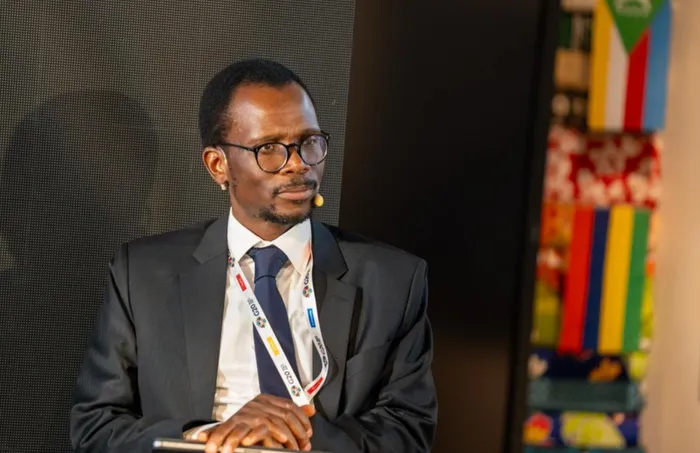Urgent call from Deputy Minister Masondo: Pass the 2025/26 Budget to protect vulnerable South Africans

Deputy Minister of Finance David Masondo warns that it will ultimately be the most vulnerable members of society who will suffer the most when the Budget is not passed by Parliament.
Image: GCIS
Deputy Minister of Finance David Masondo on Thursday called on parties not to prolong the passing of the 2025/26 Budget or vote against the Appropriation Bill.
Speaking during debate on the first reading of the Bill, Masondo said the passing of the Bill by Parliament will allow the national government to spend R1.23 trillion to deliver services to protect the vulnerable and invest in the country’s shared future.
“This R1.23 trillion is not just a number. It represents school meals, hospital beds, social grants, and infrastructure projects that will directly impact the lives of many South Africans,” he said.
Masondo made the statement as MPs debated the Appropriation Bill as part of the process to pass the overall Budget with each of the departments' votes and schedules.
The debate centres on whether parties agree with the overall principles of the Bill, and should the National House vote “no”, the entire Bill will be deemed rejected and will be referred back to the standing committee for further consideration.
Masondo said the absence of the Appropriation Bill will mean that the government may only spend 45% of the previous year's budget until the end of July, and thereafter only 10% of the previous budget.
“Our estimation overall by October is that the government will be without authority when we reach 100% last year’s appropriation."
He also said failure to pass the Budget would delay critical priorities of the government.
“We should not prolong or object to the passing of this Bill. It is ultimately the most vulnerable members of society who depend on grants, public schools, and clinics, who will suffer the most due to our inaction,” Masondo said.
However, the two big parties outside the Government of National Unity (GNU), the EFF and MK Party, indicated earlier that they will vote against the Appropriation Bill.
Some of the small parties have stated that they will vote in principle in favour of the Bill, but just against some of the individual votes of departments.
MK Party’s Sanele Mwali said there was no time for technicalities but a focus on bold and courageous measures.
Mwali said Finance Minister Enoch Godongwana, the GNU, and the ANC missed the opportunity to redefine the economic trajectory and set South Africa on a new path of sustainable growth and development.
“When we debate budgets, there is an attempt to limit Parliament from exploring other available economic alternatives,” Mwali said.
He said the government continued to pursue the same economic, fiscal, and monetary policy that failed to bring change and impoverished millions of people.
EFF MP Omphile Maotwe said her party made proposals on all department votes.
“We did not come to play internal coalition games but to make sure the voices of communities are heard in this House,” Maotwe said.
She said the Budget was not for transformation, redistribution, or to fight unemployment, poverty, and inequality.
“It is a compromised Budget negotiated in smoke-filled backrooms to keep a sinking coalition afloat,” Maotwe said.
ActionSA’s Alan Beesley said the Budget was supposed to focus on industrial development, but it allocated crime to the very departments.
Beesley also said Appropriation Bill lacked vision, coherence, and urgency.
He complained about money being lost to corruption, cadre deployment, and bloated bureaucracy.
“There is enough money to run this country well, but there is not enough to run a bloated Cabinet and feed the greed of ANC comrades,” Beesly added.
When the Bill was put to a vote, it easily secured the majority votes.
This after the ANC, DA, and other parties voted in favour of it with 262 votes, while the EFF, MK Party, ATM, National Coloured Congress, and United African Transformation garnered 90 votes.
This means the Bill has passed the first hurdle for the day.
The parties are busy making declarations on each of the department votes before the approval of the full schedule of votes and the second reading of the Bill later this afternoon.
Related Topics: